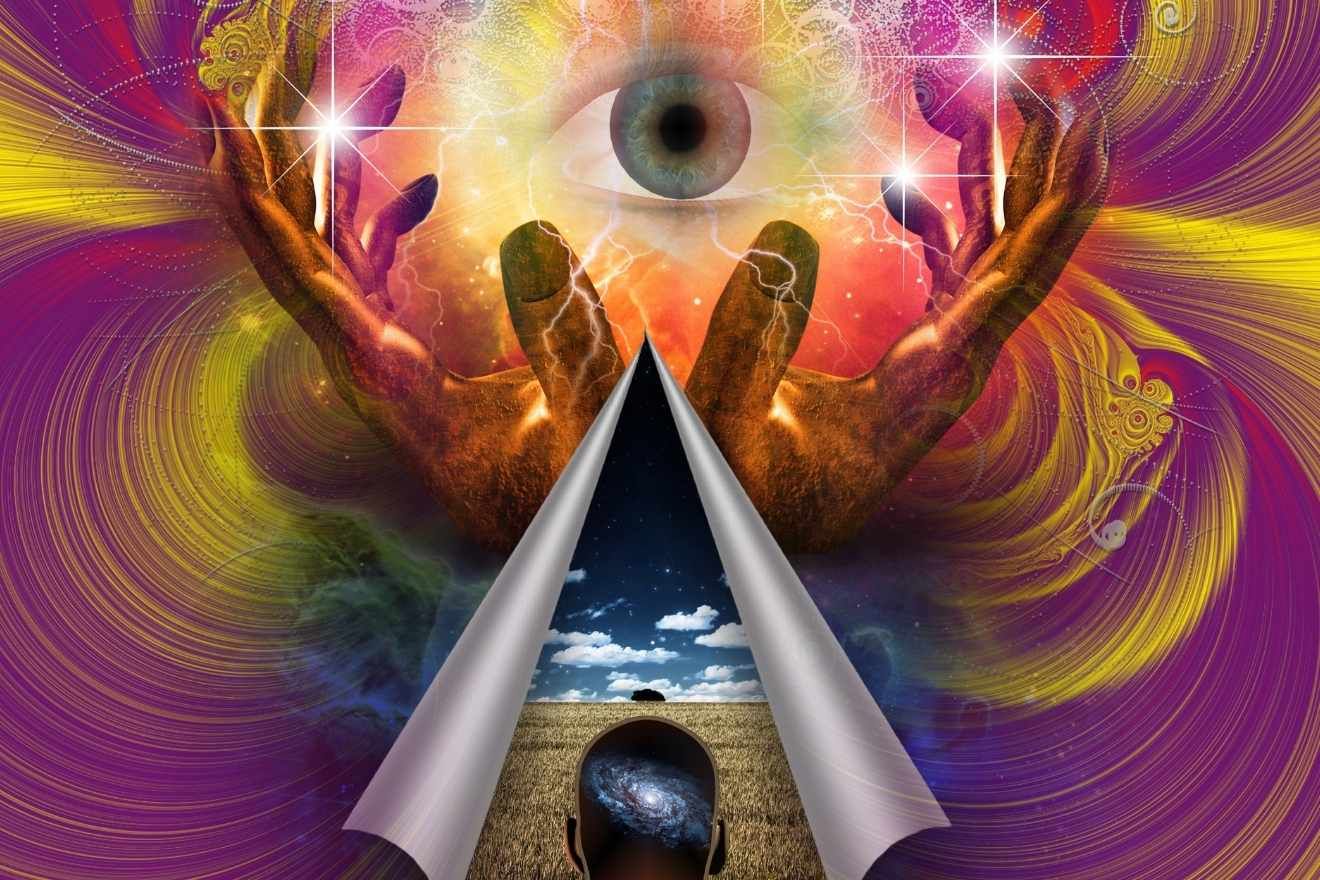If you’ve been following the research on psychedelics for mental health, you may be interested in pursuing therapy for yourself. In clinical research, psychedelics have shown to be helpful for patients with PTSD, depression, anxiety, and more. But is it possible to access them legally? Let’s answer the question: how can I get legal psychedelic therapy in 2023.
Psychedelic Support is looking forward to a future where everyone can access psychedelic medicine. But for now, most psychedelics are still illegal in the United States. We hope that’ll change in the next several years, but some folks aren’t ready to wait that long. If you’re suffering with PTSD, depression, addiction, or other mental health issues, you may be looking for a way to legally access psychedelic therapy today.
The legal status for some psychedelics has changed over the last few years, and it continues to change. So, it’s important to note there’s a difference between a substance being decriminalized and being legalized. When something is decriminalized, it’s still illegal, but it becomes the lowest priority for law enforcement and a person won’t be prosecuted for possessing up to a certain amount.
Follow your Curiosity
Sign up to receive our free psychedelic courses, 45 page eBook, and special offers delivered to your inbox.For instance, Denver decriminalized psilocybin in 2019. Psilocybin is still illegal there, but the city won’t spend money on punishing people who have it. And the state of Colorado still criminalizes psilocybin, so it creates a gray area. Still, federal law can technically still prosecute anyone who possesses psilocybin in Denver.
Decriminalization refers specifically to small personal amounts but doesn’t allow anyone to manufacture or sell substances. “Grow, gather, gift” is the mantra in cities that adopted these policies.
Psychedelic policies are foggy, and gray areas exist between city, state, and federal law. Let’s get clear on policies around psychedelics in 2023.
| Substance | Federal Legal Status1 | State Legal Status |
| Ketamine | Schedule III Substance Ketamine is FDA-approved for anesthesia. Esketamine is FDA approved for depression. Ketamine is now accessible nationwide via ketamine therapy and ketamine infusion. | Ketamine therapy and infusion is legal in every state through off-label prescriptions for psychiatric indications. Spravato (esketamine) is prescribed for depression disorders in supervised clinics. Non-medical use is prohibited. |
| Psilocybin | Schedule I Substance | Psilocybin will be legal in Oregon through Oregon Psilocybin Services. Psilocybin is decriminalized in Denver, Oakland, Santa Cruz, Detroit, and many others (tracker to view all). The state of California is, hopefully, in the process of decriminalizing. |
| MDMA | Schedule I Substance | MDMA is in the process of becoming a legal FDA-regulated medicine. It’s still illegal and criminalized in every state. |
| LSD | Schedule I Substance | LSD is illegal and criminalized in every state. California is in the process of proposing new measures for decriminalization. |
| DMT | Schedule I Substance | DMT is still criminalized in any state. |
| Ayahuasca | Schedule I Substance | Ayahuasca is accessible for specific religious churches (Santo Diame and UDV). It’s also decriminalized in several cities by falling into the category of psychoactive plants. |
| Ibogaine | Schedule I Substance | Ibogaine is still criminalized in every state. |
| Mescaline | Schedule I Substance | Specific Native American groups use peyote legally for religious ceremonies. All mescaline-containing cacti are still criminalized in every state. |
Accessing Psychedelic Therapy Legally in the United States
Even though most psychedelics are still illegal on the federal and state level, it’s still possible to access others.
Ketamine treatment is available in every state and most cities through ketamine clinics and ketamine-assisted psychotherapy. Clinical trials are a way for people to access psychedelics through experimental treatment. Compassionate use policies may create a path to access for some people.
Let’s talk about these avenues and how to access them.
Ketamine
Ketamine has surged in popularity as an off-label treatment for depression, anxiety, PTSD, and more. Ketamine has been safely used as an anesthetic and pain management medication for decades2. It works faster on depression symptoms than SSRIs, so it may be especially helpful for patients facing major depression1.
If you’re looking for ketamine treatment, you should know that there are two different ways:
- Ketamine-assisted Psychotherapy combines the ketamine experience with integration therapy. This way you’re able to make sense of your experience and come away with a deeper understanding.
You’ll work with a ketamine therapist and build a rapport with them before embarking on your ketamine experience. During your session, your therapist may stay with you to make sure you feel safe and comfortable. They’ll help you process any negative experiences that come up during the session.
Afterwards, you’ll have support as you grow to understand and integrate what you learned through ketamine.
- Ketamine Infusion is accessed through an anesthesiologist or CRNA, so there’s no talk therapy component. You’ll likely be supervised by a nurse during your treatment, and go home afterwards. This is the common model for outpatient ketamine clinics.
These models each offer a very different patient experience. We have reliable data for ketamine-assisted psychotherapy because it’s heavily researched. It offers patients more integrative mental health care, and more in-depth support. We’re not yet sure how the stripped-down infusion model compares to ketamine-assisted psychotherapy in terms of patient response and duration of benefits.
We think that ketamine-assisted psychotherapy is better for patients. Ketamine therapists generally have a stronger mental health background than CRNAs and anesthesiologists.
To learn more about comparing ketamine therapy vs. ketamine infusion, check out our guide.
Lots of people could benefit from ketamine treatment. But barriers do still exist. Most insurers still do not cover ketamine treatment – and it can be expensive. Many ketamine centers offer infusions at $500 per sitting, with most patients needing three or more. Some treatment centers use treatment plans to space these payments out, but cost alone is a barrier for many people who could benefit from ketamine.
If you’re interested in ketamine therapy, take a look at our network of providers to find one in your area. Ketamine therapists come from a range of backgrounds, including nurses, counselors, therapists, PsyDs, and more. Ketamine has helped thousands of people improve their mental health. Contact a ketamine therapist to learn if ketamine could be a good fit for you.
Ketamine treatment is one way you can access psychedelic therapy in 2023, but it’s not for everyone. Some patients are interested in other psychedelics for mental health, like psilocybin for depression. If you’re wondering “How can I access psychedelics that are still in experimental stages?” we’ve got some options for you.
Clinical Trials
Psychedelics like psilocybin, MDMA, and LSD are currently undergoing research in large-scale clinical trials. All over the country, trials offer a way for people to experience psychedelic therapy before substances become FDA-approved. Trials need people like you to help us understand the impact of psychedelics on humans.
Different phases of trials may be accessible to different people. The first round of trials is filled with healthy volunteers, followed by the second round of patients with a condition. The third, larger phase includes more patients with a condition. Some large clinical trials include hundreds of people. So getting into a clinical trial may be easier than you think.
Clinical trials offer a cost-effective way to access psychedelics for people who are able to enroll. Sometimes you can participate at no cost to you, and some clinical trials even pay you to participate. Our clinical trial page offers a current map of trials involving MDMA, psilocybin, LSD, cannabis, and ketamine.
Expanded Access and Compassionate Use
The FDA’s expanded access policy allows specific people to access substances that are in later stages of trials. This use is restricted to patients with serious illnesses who have exhausted other treatment methods. People who are in end-of-life care are also appropriate for compassionate use3.
If you’re interested in accessing Compassionate Use for yourself or a loved one, check out the FDA’s Expanded Access policy. Just so you know, only a fraction of patients are eligible for expanded access. Canada recently expanded their Special Access Policy for psychedelics. But even still, many people who can benefit from treatment are not able to get it through compassionate use. Outside of the US, there are other ways to get psychedelic treatment: through psychedelic retreats.
Accessing Psychedelic Therapy Legally Outside the United States
If you can afford it, psychedelic retreats are now being offered around the world in countries with less stringent enforcement. These include Jamaica, Costa Rica, and others.
Many people have found community and support through retreats that combine psychedelic experiences with therapy. But these retreats can come with some risks.
There are no care standards or enforcement organizations for psychedelic retreats. This means that each retreat center may be very different from the next. Do your research and read reviews before making this personal decision. Our free psychedelic harm reduction course provides questions to ask retreats before you enroll and other tips to stay safe.
Psychedelics may have different effects for someone who’s taking SSRIs or other medications. Be sure your psychiatrist or primary care physician is aware that you’re going on a psychedelic retreat. Retreats typically have a medical leader, who should also be aware of your mental health and medication history.
If you do choose to embark on a psychedelic treatment journey, we’d love to hear about your experiences. Our Community Groups provide a way to build relationships and share with others in psychedelic treatment. These in-person and virtual groups are open to anyone interested in this growing community and learning about psychedelic therapy.
References
- Controlled Substances Schedules. Controlled substance schedules. (n.d.). Retrieved July 2, 2022, from https://www.deadiversion.usdoj.gov/schedules/
- Pribish A, Wood N, Kalava A. A Review of Nonanesthetic Uses of Ketamine. Anesthesiol Res Pract. 2020 Apr 1;2020:5798285. doi: 10.1155/2020/5798285. PMID: 32308676; PMCID: PMC7152956.
- Greif A, Šurkala M. Compassionate use of psychedelics. Med Health Care Philos. 2020 Sep;23(3):485-496. doi: 10.1007/s11019-020-09958-z. PMID: 32468195.






